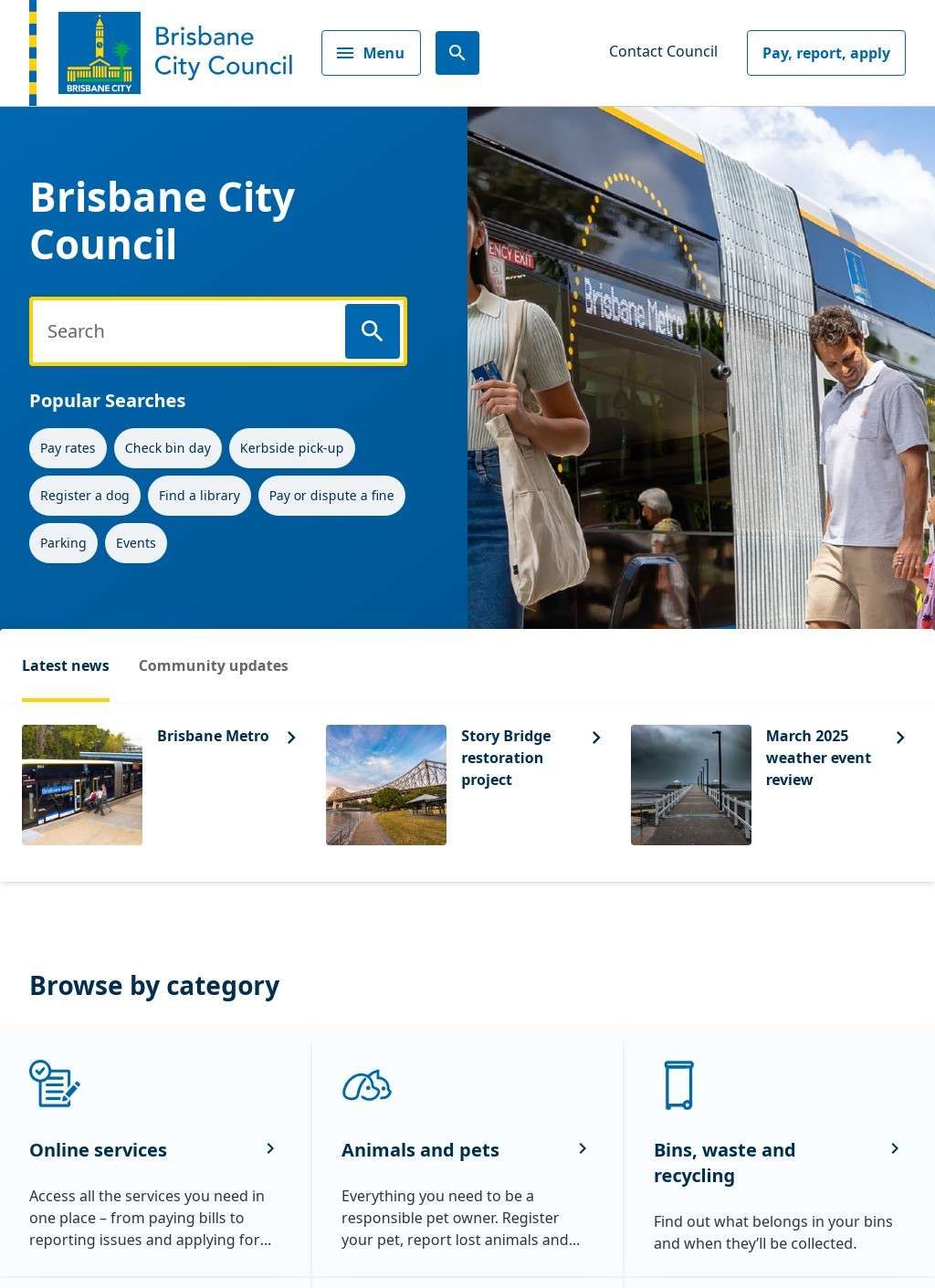Brisbane City Council operates as Australia's largest local government authority by population, serving over 1.2 million residents across a sprawling metropolitan area that covers 1,338 square kilometers. This massive administrative organization manages everything from waste collection and park maintenance to transport services and urban planning, making it significantly more complex than typical municipal councils. The scale of operations is impressive, with an annual budget exceeding $3.4 billion and an asset base valued at $35.9 billion, demonstrating the substantial economic impact this organization has on Queensland's capital city.
The council's structure reflects its size and complexity, with 27 elected officials including 26 ward councillors and the Lord Mayor, who serves as the chief executive officer. Adrian Schrinner currently holds the mayoral position, leading an organization that employs over 7,000 permanent staff members. This workforce delivers an extensive range of services that would typically be handled by multiple agencies in other jurisdictions, from operating bus and ferry networks to maintaining extensive parkland systems and managing development approvals.
Transport services represent one of Brisbane City Council's most visible functions, operating an integrated network of buses and ferries that complement the state government's rail services. The council-owned bus fleet serves hundreds of routes throughout the metropolitan area, while the distinctive CityCat ferries provide both practical transport and tourist experiences along the Brisbane River. These services are particularly important given Brisbane's sprawling geography and the need to connect diverse neighborhoods efficiently.
The organization's environmental and sustainability initiatives reflect Brisbane's commitment to addressing climate change while maintaining livability standards. Extensive parks and recreation facilities span the metropolitan area, from small neighborhood playgrounds to major sporting complexes and nature reserves. The council manages thousands of hectares of parkland, including the famous South Bank Parklands and numerous bushland reserves that provide crucial green space in Australia's fastest-growing city.
Urban planning and development services prove increasingly important as Brisbane experiences rapid population growth and prepares for the 2032 Olympic and Paralympic Games. The council's planning department processes thousands of development applications annually, balancing growth pressures with community expectations for livability and environmental protection. This development approval process influences everything from individual home renovations to major commercial projects that reshape Brisbane's skyline.
Waste management and environmental services demonstrate the council's operational complexity, with regular garbage collection, recycling programs, and bulk waste pickup services reaching every corner of the metropolitan area. The organization has implemented innovative waste reduction programs and operates transfer stations throughout the city, managing the environmental impact of one of Australia's fastest-growing urban areas.
Community services and cultural programs extend beyond basic municipal functions to include libraries, community centers, cultural events, and recreational programs. The council operates multiple library branches that serve as community hubs, offering not just book lending but also digital services, meeting spaces, and educational programs. These facilities prove particularly valuable in connecting diverse communities across Brisbane's extensive geographic area.
The 2032 Olympic and Paralympic Games preparation represents a transformative opportunity for Brisbane City Council, requiring coordination with state and federal governments, international sporting bodies, and private sector partners. This massive undertaking involves infrastructure development, venue preparation, transport planning, and community engagement activities that will reshape parts of the city while creating lasting legacies for residents.
Customer service delivery has evolved significantly with digital transformation initiatives that allow residents to access many council services online. From paying rates and fines to booking facilities and reporting issues, these digital services improve convenience while reducing administrative costs. The council maintains customer service centers throughout the city for residents who prefer face-to-face interactions or need assistance with complex matters.
Economic development initiatives support Brisbane's position as a major Australian business center, with the council working to attract investment, support local businesses, and maintain the city's competitiveness. These efforts include marketing Brisbane internationally, facilitating major events, and ensuring that infrastructure and services meet the needs of a growing economy.
Emergency management and disaster preparedness reflect Brisbane's vulnerability to natural disasters, particularly flooding, severe storms, and bushfires. The council maintains comprehensive emergency response capabilities and works closely with state emergency services to protect residents and infrastructure. These preparations proved crucial during recent flooding events and continue to evolve as climate change increases weather-related risks.
Contact information and customer service options include multiple channels for residents to access council services, with phone support available during business hours Monday through Friday, online services accessible 24/7, and customer service centers located throughout the metropolitan area. The council also maintains active social media presence and provides specialized contact options for business inquiries, development applications, and emergency situations.
